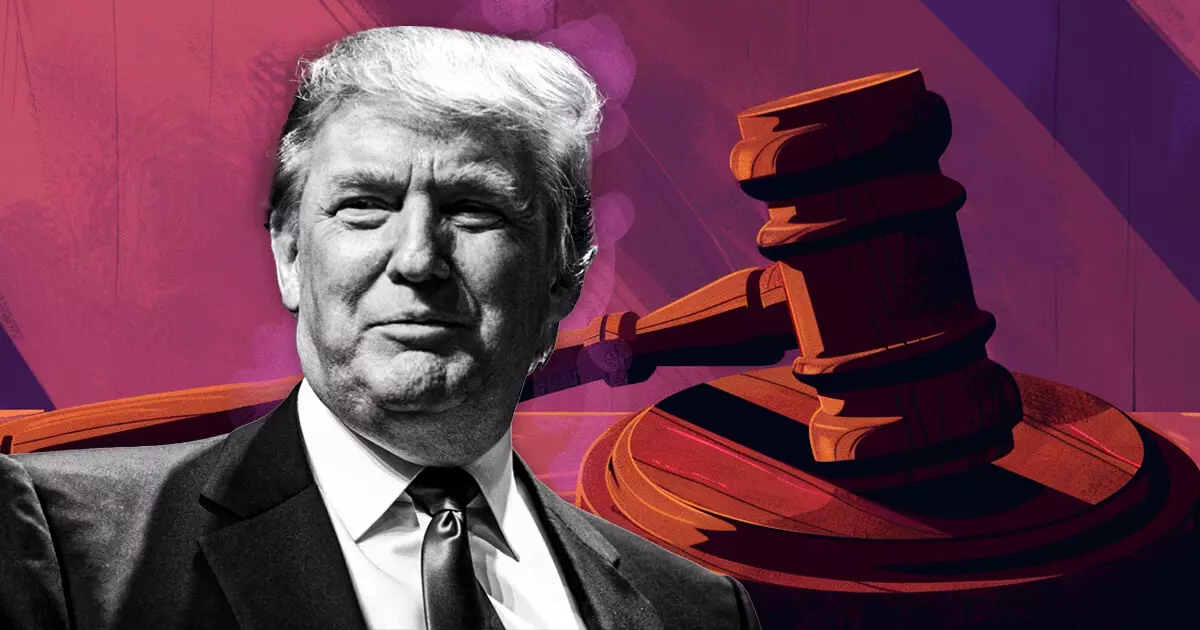Donald Trump’s foray into the decentralized finance (DeFi) sector with World Liberty Financial arrives at a sensitive juncture in the cryptocurrency landscape. With significant scrutiny from regulatory bodies, particularly the SEC, the journey ahead appears fraught with obstacles. This article examines the potential implications of regulation on Trump’s venture, the perceptions around the SEC’s role, and the broader environment for cryptocurrency innovation in the U.S.
World Liberty Financial is unlikely to enjoy a regulatory cushion, as SEC Commissioner Mark Uyeda has made it clear that no special treatment will be extended due to Trump’s prominence. The SEC operates as a disclosure regulator, which implies that its primary focus is on ensuring transparency and adherence to disclosure requirements rather than passively evaluating the potential or merits of any particular project. Without a streamlined path or unique exemption, Trump’s team will need to be ready to tackle the same disclosure-related hurdles faced by any other crypto enterprise.
In his recent remarks, Uyeda shed light on the SEC’s intention to uphold regulatory standards that apply uniformly across the crypto ecosystem. This indicates that World Liberty Financial will be held to rigorous compliance measures, reflecting a broader impact on how DeFi projects are launched and maintained in the U.S. If Trump’s venture does run into regulatory issues, this could set a dangerous precedent for future DeFi initiatives in the country.
Amidst increasing political tension and partisan divides, the regulatory trajectory for World Liberty Financial could be further complicated. The Democratic party, characterized by its apprehension towards cryptocurrency, may fuel a push for stricter regulations. This evolving political landscape adds another layer of difficulty for Trump’s ambitious DeFi project. With the SEC acting within this complex ecosystem, there are worries about potential backlash impeding World Liberty Financial’s operational goals.
In the past, the SEC has been criticized for its regulatory ambiguity, which many industry players believe has stunted innovation. Uyeda himself has expressed concern that the lack of clarity in regulatory frameworks could drive innovative projects to relocate internationally, away from the U.S. market entirely. The intersection of politics and regulation presents a unique challenge for World Liberty Financial, as navigating these waters will require not just legal expertise but also ingenuity in strategy.
The Call for Reform in Regulatory Frameworks
In light of such challenges, there has been a growing call from various stakeholders—including SEC Commissioner Hester Peirce—for a comprehensive overhaul of the regulatory framework surrounding cryptocurrencies. Peirce has publicly labeled the existing environment as “toxic,” reflecting the strain industry participants feel in trying to innovate under opaque regulatory conditions. A more transparent and supportive legal environment could potentially invigorate the American crypto scene, but it remains to be seen when or if such changes will manifest.
Proponents of reform advocate for the establishment of a joint advisory body focused on creating clearer guidelines for crypto ventures. Such changes could encourage a more inviting climate for innovation, supporting projects like World Liberty Financial. However, until systemic reforms are made, the regulatory landscape is likely to remain an uphill battle for Trump’s endeavor.
The Future of World Liberty Financial and U.S. Crypto Innovation
The road ahead for Donald Trump’s World Liberty Financial is ambiguous at best. While the former president aims to position the U.S. as a leader in the global cryptocurrency market, the success of this venture seems tethered to the SEC’s evolving stance. The intricate relationship between regulation and innovation reveals the precarious balance that must be struck to ensure growth without compromising standards.
Ultimately, as World Liberty Financial endeavors to carve its niche in the DeFi space, it will face the same intricate and often inscrutable challenges that have marred many before it. The looming questions will hinge on how effectively Trump’s team can navigate these strict regulations and whether greater clarity in regulatory practices will emerge in time to support their efforts. The future of this project—and the broader U.S. cryptocurrency landscape—hangs in the balance as industry participants watch with bated breath.



















Leave a Reply